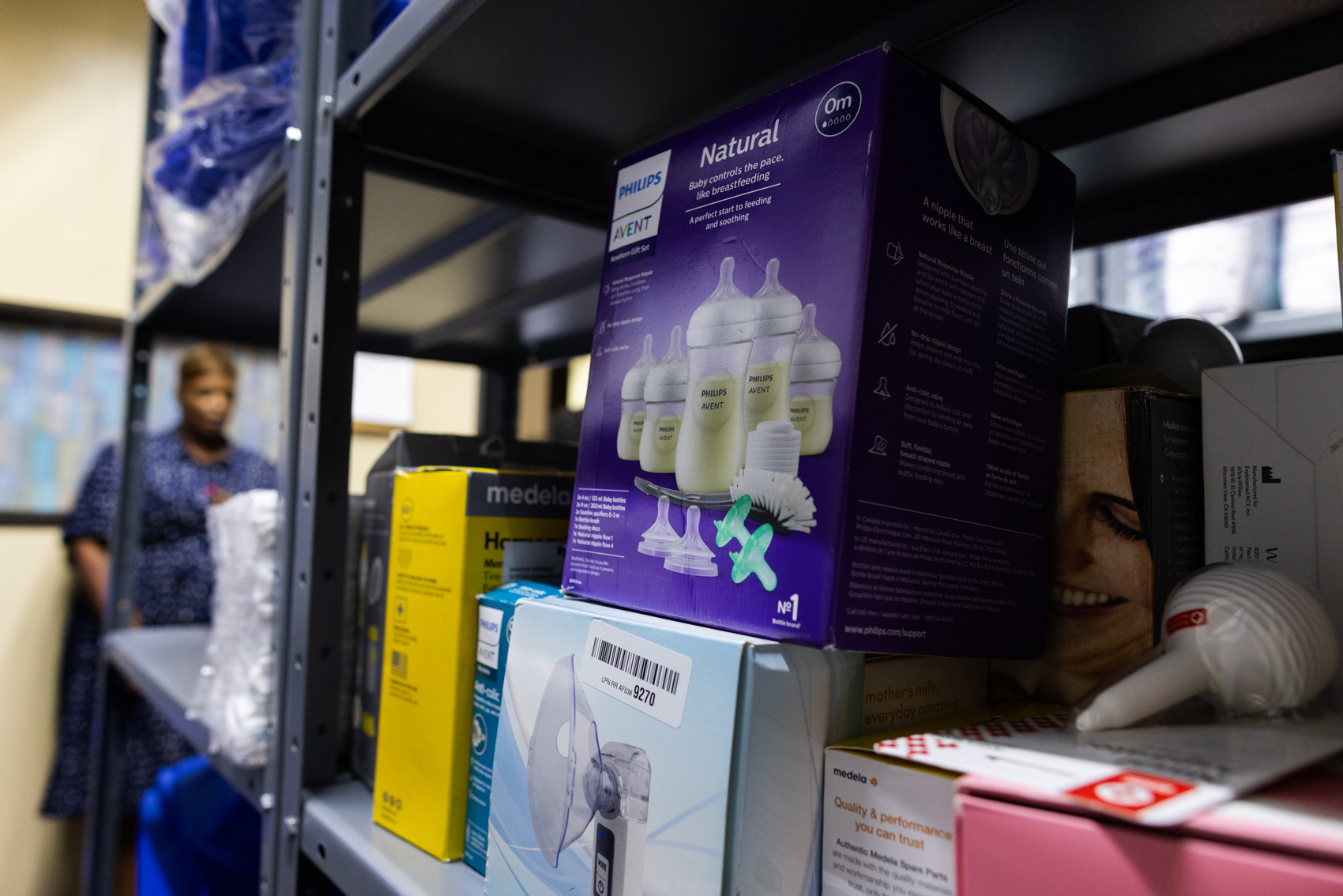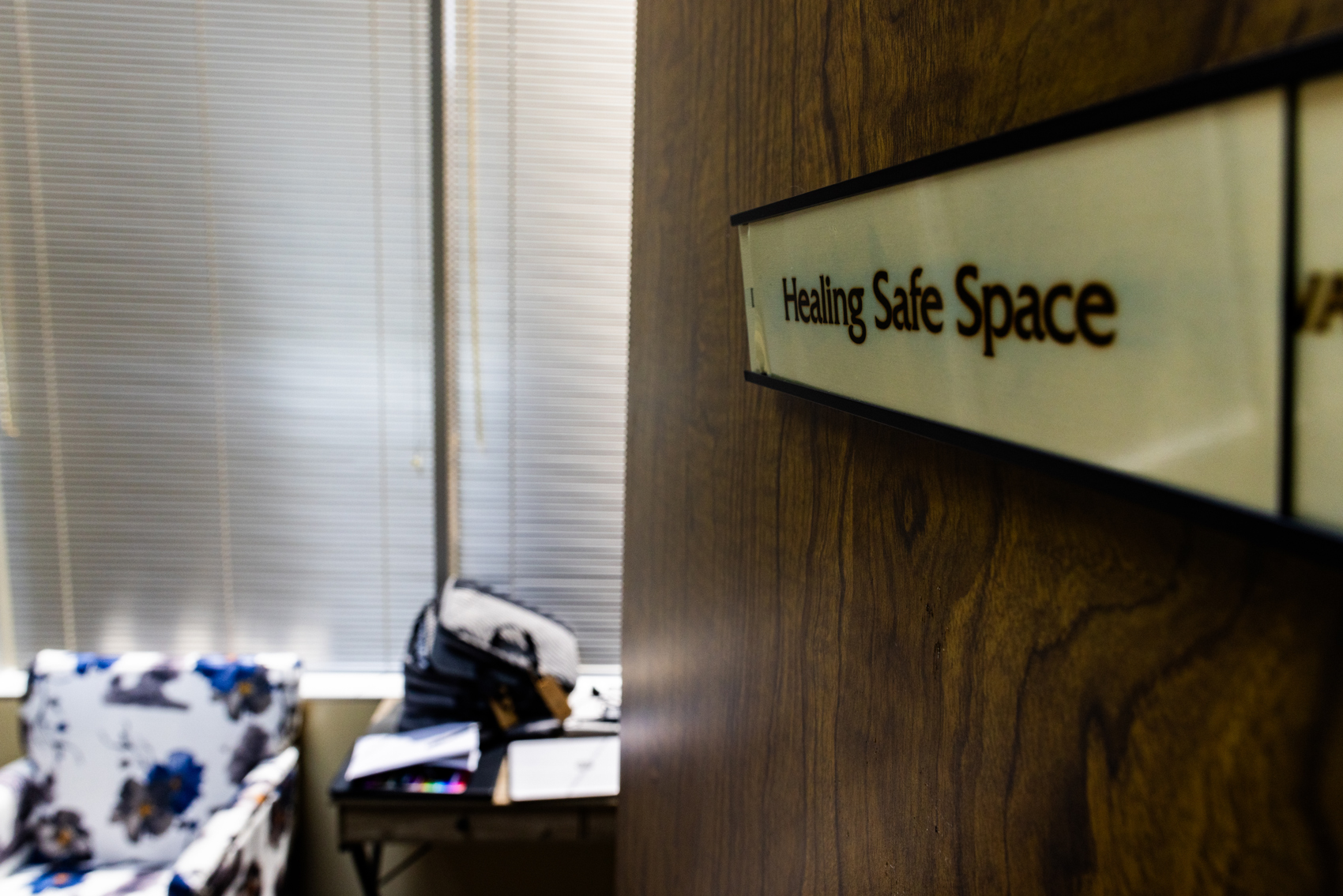|
Getting your Trinity Audio player ready...
|
In 2019, 63 Texas women died from causes related to pregnancy. One in four of those deaths was related to a mental health condition — making maternal mental health the leading cause of death for those women, according to new data released last week by the Texas Department of State Health Statistics.
So what are we doing about it?
“We need a lot more money, advocacy and care,” says Jasmine Roussell, the administrator at a collective of six Texas birthing and parenting organizations called the Maternal Health Equity Collaborative. Roussell is “nose deep in the data,” including the new report released last week by the Texas Maternal Mortality and Morbidity Review Committee; she’s also a certified doula who was struck during her training several years ago by the subpar state of birthing here in Texas.
“It was jarring because I was expecting to learn about babies,” she says. “I wasn’t expecting to learn that here in the United States, where we should have access to every resource, that we have some of the worst maternal and infant mortality rates in the world.”
And here in Texas, the share of women who die due to pregnancy-related causes is among the worst in our nation. The most recent data from the Centers for Disease Control and Prevention shows that across the U.S., 23.5 women died per 100,000 live births between 2018 and 2021; in Texas, the rate was 28.1 per 100,000. (It’s important to note that this data, as well as the new state numbers, comes from before the passage of SB8 in 2021, which banned abortions as early as five weeks into a pregnancy, a move that has had significant impacts on maternal health — the true reach of which is not yet known.)
In Houston, home of the world’s largest medical center, it’s tempting to think we might be an exception to these dismal numbers.
We’re not.
“In Harris County, and in Houston, March of Dimes gave both the city and the county an F letter grade in our most recent report,” says Alicia Lee, the Houston area’s director of collective impact for the March of Dimes.
That report specifically examined Houston’s preterm birth rate, revealing that one in eight babies born in the Houston area are born before 37 weeks of gestation, which Lee describes as “a leading indicator” for maternal health and mortality. “Houston by no means has the highest rate,” Lee notes, “but we do have a rating that is abysmal.”
It’s impossible to ignore that our local ratings are unforgivably unequal: The new state data shows Black women die about 1.5 times as frequently as white women due to pregnancy-related issues. And while Latina women are actually less likely to die than white women, Latinas are seeing their rates increase, even as the rates for white and Black women decreased slightly between 2013 and 2019.
The reasons for this are multi-layered and complicated. But in many ways, they’re also simple:
“This is systemic racism, and you’re not going to fix that overnight,” says Kay Matthews, the executive director and founder of Shades of Blue, a maternal mental health focused nonprofit organization based in Houston. “You have to address it and call it what it is.”

It’s well documented that the physical pain of women of color is often discounted and discredited by doctors. It’s also well documented that the share of doctors who are women of color is nowhere near high enough to be truly representative of our nation’s population. And of course, it’s well documented that women of color are more likely to experience other “social determinants of health” — those environmental conditions of the places where we live, learn, work, etc., that can affect one’s health outcomes — that are linked to lower health care access.
In short, it’s well documented that Matthews speaks an infuriating truth here. Not just about the conditions that lead to numbers like those dropped by the DSHS last week, but also about the fact that we’re “not going to fix that overnight.”
So how do you solve a complex problem like this? Matthews has an idea for that.
“The reality is understanding and calling out what’s happening in our systems is how we’re going to change it,” she says. “Doing this work is tiresome, but it’s necessary. In a system that continues to create these barriers, talking about it, having conversations about it, and continuing to bring it to the forefront is the only way it’s going to change.”
That’s hard to do — especially on topics surrounding mental health, which is wrapped in a cocoon of stigma. It can be even harder when discussing that topic during the postpartum period, which I found to be the most isolating few months of my entire life.

In the months before a woman in Texas has a child, she’s inundated with doctor’s visits — as she should be. During my high-risk pregnancy a couple years ago, I averaged about an appointment a week as I neared my due date. Then I had my daughter. I was discharged from the hospital a little more than 48 hours after my delivery, and told to follow up with my obstetrician at the six-week mark for an all-clear. That was it.
In the first few weeks of my daughter’s life, my husband and I schlepped her back and forth to countless doctor’s appointments. Every time we checked in at the pediatrician, I was handed a clipboard with a faded, greyscale photocopied piece of paper, asking me to self-identify whether I felt sad or overwhelmed more often than usual. I’d check the “yes” box, only to learn it was an exercise in futility.
I recounted all of this the other day, while chatting with a friend who is pregnant. I told her how after nearly 10 months of feeling medically monitored during my pregnancy, I felt “invisible” and “like I didn’t exist” after my daughter’s birth. In turn, my friend told me that another friend of hers had just described that period of time the exact same way.
That talk with my friend was the first time I’d ever really said that out loud. And in that very first admission, I’d learned that the revelation I’d been afraid to give voice to was a shared experience.
It goes even deeper than me and a friend of a friend.
“Mental health is the No. 1 pregnancy-related morbidity,” says Amy Raines-Milenkov, an associate professor in the department of pediatrics and women’s health at the University of North Texas Health Science Center at Fort Worth, and a member of the DSHS’s review committee that released its findings last week. “I don’t think enough attention has been paid to the postpartum period. There’s so many visits prenatal — and sometimes it even seems too many when you’re in it — but then in the postpartum period, you’re dropped.”
We need to fix that, she says. And yet, “in Texas there hasn’t seemed to be any kind of will to address that,” Raines-Milenkov says.
So what can we do? How can we work to save mothers who are dying preventable deaths? How can we solve a problem that, as Raines-Milenkov says, “is an indicator of the position of women in our society”? I see tangible solutions, like instituting requirements for postpartum check-ins that allow a mother to feel medical support during this period of time. But that feels like a castle in the sky. And we need a foundation.
We need to start simply, by elevating the conversation around postpartum health, and especially around postpartum mental health. Let’s use our words to pierce the bubble of isolation that so many feel enveloped in.
“The more conversations we’re having out loud, the more we’re going to change the outcomes,” says Matthews.
Share your Houston stories with me. We can start on Twitter, Facebook and Instagram. Or you can email me at [email protected].


